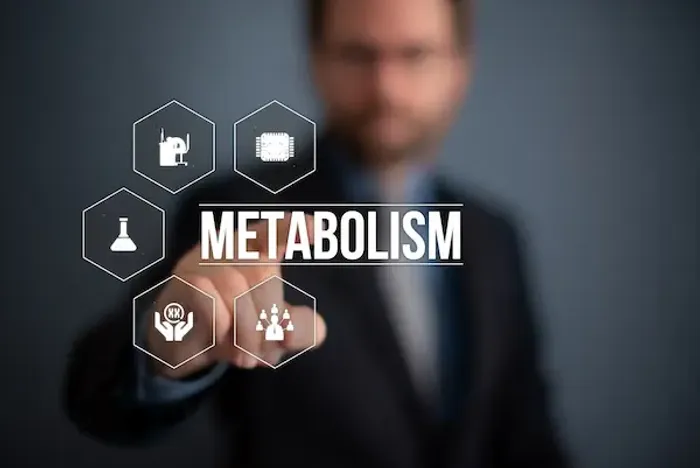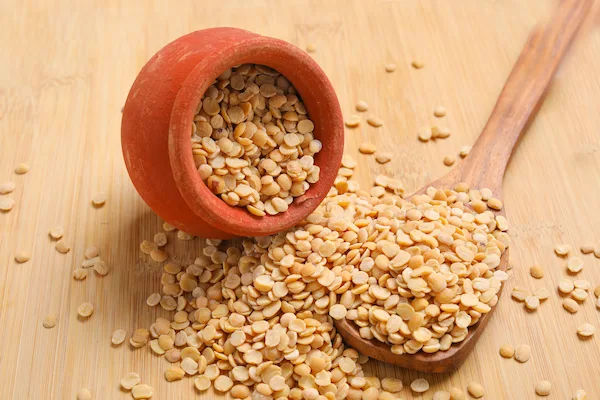Understanding Metabolism
Discover how metabolism really works beyond the myths. Learn about catabolism, anabolism, BMR, and the key factors that influence your metabolic rate. Get science-backed tips on nutrition, exercise, sleep, and lifestyle habits to support a healthy, efficient metabolism for long-term energy and well-being.


Do you ever feel like some people can eat anything without gaining weight, while others just look at a cupcake and feel their jeans get tighter? We often chalk this up to "metabolism," a mysterious force we blame for our weight struggles or credit for our easy maintenance. But what is metabolism, really? Is it a single thing you can "boost" with a magic pill or a specific superfood? The truth is far more fascinating. Metabolism is the intricate sum of all the chemical processes that keep your body alive and functioning. It's not just about weight; it's about energy. From breathing and thinking to digesting food and repairing cells, every single action requires energy derived from your metabolic processes. This article will demystify how your metabolism works, explore the real factors that influence its speed, and provide evidence-based strategies to support its health for long-term energy and well-being, moving beyond the hype and into the science.
What Is Metabolism? It's More Than Just "Burning Calories"
At its core, metabolism is the engine of your body. It converts the food you eat into the energy that powers everything you do, both voluntarily (like going for a run) and involuntarily (like pumping blood or growing hair). This process involves a complex network of hormones and enzymes that not only convert food into fuel but also determine how efficiently that fuel is used.
The Two Sides of Metabolism: Anabolism and Catabolism
Metabolism consists of two complementary, simultaneous processes:
- Catabolism (Breaking Down): This is the process of breaking down large molecules (like carbohydrates, proteins, and fats from food) into smaller units. This destruction releases the energy that is stored within their chemical bonds. Think of it as chopping wood to get logs for a fire. This is the process most associated with "burning calories" for immediate energy.
- Anabolism (Building Up): This is the constructive process. It uses the energy released by catabolism to build and repair cells, create new proteins, and store energy for future use. It's like using the heat from the fire to build a new house. Building muscle is a prime example of anabolism.
Your overall metabolic rate is the balance between these two processes. A "fast metabolism" typically means your body is efficient at both breaking down fuel and using it for repair and function.
Your Basal Metabolic Rate (BMR): Your Body's Idling Speed
Your Basal Metabolic Rate (BMR) is the number of calories your body needs to perform its most basic life-sustaining
functions while at complete rest. This includes cell production, breathing, circulation, nutrient processing, and temperature regulation. Surprisingly, your BMR accounts for approximately 60-75% of the total calories you burn each day. It's the energy cost of simply being alive. Factors like your height, weight, sex, and age heavily influence your BMR, which is why it's a more accurate measure of your metabolic health than any scale weight.
The Key Factors That Influence Your Metabolic Rate
Your metabolic rate isn't set in stone; it's influenced by a mix of factors, some within your control and some not.
Body Composition: Why Muscle Matters More Than Weight
This is the most significant changeable factor. Muscle tissue is metabolically active, it requires more energy to maintain than fat tissue. This means that at rest, a pound of muscle burns more calories than a pound of fat. Studies show that every pound of muscle burns roughly 6-10 calories per day at rest, while a pound of fat burns only about 2-3 calories. Therefore, two people who weigh the exact same can have vastly different metabolic rates if one has a higher percentage of muscle mass. This is why body composition is a far better indicator of health than BMI alone.
Age, Sex, and Genetics: The Unchangeable (But Understandable) Factors
- Age: Metabolism naturally slows down about 1-2% per decade after age 20. This is primarily due to the loss of muscle mass (a process called sarcopenia) and hormonal changes that occur with age.
- Sex: Men generally have a faster metabolism than women because they tend to be larger, have less body fat, and have more muscle mass due to hormonal differences like higher testosterone levels.
- Genetics: Some people are genetically predisposed to have a slightly higher or lower BMR. Your genes can influence your muscle fiber type and how efficiently your body converts food into energy.
Hormonal Regulators: The Thyroid's Crucial Role
Hormones are the master controllers of your metabolic rate. The thyroid gland, a small butterfly-shaped organ in your neck, produces hormones (T3 and T4) that regulate the speed of your metabolism. An underactive thyroid (hypothyroidism) can slow metabolism, leading to fatigue and weight gain, while an overactive thyroid (hyperthyroidism) can speed it up, causing unintended weight loss and anxiety. Other hormones like insulin, cortisol (the stress hormone), and hunger hormones (leptin and ghrelin) also play significant roles.
Practical Ways to Support a Healthy Metabolism
While you can't change your genetics, you can powerfully influence your metabolism through your daily habits.
Metabolic Health and Nutrition: What to Eat (and When)
Crash dieting is one of the worst things you can do for your metabolism. Severely restricting calories signals to your body that it's in a famine, causing it to slow down its metabolic processes to conserve energy—a phenomenon often (and somewhat misleadingly) called "starvation mode."
The Thermic Effect of Food (TEF): How Eating Can Burn Calories
TEF is the energy your body uses to digest, absorb, and process the nutrients from your food. It accounts for about 10% of your total daily energy expenditure. Protein has a significantly higher thermic effect (20-30%) compared to carbohydrates (5-10%) and fats (0-3%). This means you burn more calories digesting a chicken breast than you do digesting a piece of bread with the same caloric value.
The Truth About Metabolism-Boosting Foods
While no single food is a magic bullet, some can have a slight, temporary effect. Spicy foods containing capsaicin (like chili peppers) can give your metabolism a minor, short-term boost. Green tea and coffee (caffeine) can also slightly increase energy expenditure. However, the effect is small. The real benefits of foods for metabolic health come from a consistent, balanced diet rich in whole foods.
Exercise: The Most Powerful Metabolic Tool You Have
Physical activity is the most variable and controllable part of your energy expenditure.
Strength Training: Building a Metabolic Engine
This is non-negotiable for long-term metabolic health. By building lean muscle mass through resistance training (weight lifting, bodyweight exercises, resistance bands), you are directly increasing your BMR. More muscle means you burn more calories 24/7, turning your body into a more efficient energy-burning machine.
High-Intensity Interval Training (HIIT): The Afterburn Effect
HIIT involves short bursts of all-out effort followed by brief recovery periods. Its metabolic power comes from Excess Post-Exercise Oxygen Consumption (EPOC), or the "afterburn effect." After a HIIT session, your body continues to consume oxygen at an elevated rate to repair muscle and restore itself to a resting state, meaning you continue to burn extra calories for hours after your workout is over.
Lifestyle Factors: Sleep, Stress, and Hydration
- Sleep: Chronic sleep deprivation disrupts the hormones that regulate appetite (increasing ghrelin and decreasing leptin) and can increase cortisol levels, both of which can negatively impact metabolism and promote fat storage.
- Stress: High, chronic stress keeps cortisol levels elevated, which can encourage the body to store fat, particularly around the abdomen, and can increase cravings for high-calorie foods.
- Hydration: Every cellular process in your body, including your metabolism, requires water. Studies have shown that drinking water can temporarily boost metabolism by 24-30% for about an hour, a phenomenon known as water-induced thermogenesis.
Debunking Common Metabolism Myths
- Myth: "Eating small, frequent meals boosts your metabolism."
- Fact: Meal frequency has a negligible impact on total metabolic rate for most people. What matters most is the total quality and quantity of food consumed throughout the day. Do what feels best for your body and schedule.
- Myth: "This supplement is a miracle metabolism booster."
- Fact: Most over-the-counter supplements promising a dramatic metabolic boost are not supported by strong scientific evidence and can be unsafe. The safest and most effective strategies are proper nutrition and exercise.
- Myth: "Your metabolism is permanently damaged after dieting."
- Fact: While adaptive thermogenesis (metabolic adaptation) can cause your BMR to drop during calorie restriction, it is not necessarily permanent. It can be reversed by returning to a sustainable calorie intake, particularly when combined with strength training to rebuild muscle.
When to Talk to a Doctor About Your Metabolism
If you are experiencing severe symptoms like unexplained weight gain or loss, extreme fatigue, hair loss, sensitivity to cold or heat, or changes in heart rate alongside concerns about your metabolic rate, it's crucial to consult a doctor. They can run tests to check for underlying conditions like thyroid disorders, which require medical treatment.
Conclusion
Understanding your metabolism is the first step toward working with it, not against it. It's not a simple dial you can turn up with a quick fix but a complex, dynamic system deeply influenced by your body composition, activity, nutrition, and lifestyle. The goal isn't to chase a "fast metabolism" through unsustainable means but to support a healthy, efficient metabolism for lifelong energy and well-being. The most powerful levers you have are consistent strength training, a balanced diet rich in protein and whole foods, quality sleep, and stress management. By focusing on these foundational habits, you empower your body's innate engine to run at its best, not just for a month, but for a lifetime. Start by incorporating one positive change this week, whether it's adding an extra serving of protein to your lunch or scheduling a strength workout.
Consult a Specialist for Personalised Advice
Consult a Specialist for Personalised Advice

Dr Suseela
General Physician
5 Years • MBBS
Bengaluru
Apollo Medical Center, Marathahalli, Bengaluru

Dr. M L Ezhilarasan
General Practitioner
6 Years • MBBS
Visakhapatnam
Apollo 24|7 Clinic - Andhra Pradesh, Visakhapatnam

Dr. Vivek D
General Physician
4 Years • MBBS
Bengaluru
PRESTIGE SHANTHINIKETAN - SOCIETY CLINIC, Bengaluru

Dr Bhargav Vuppumalla
General Physician/ Internal Medicine Specialist
5 Years • MBBS MD GENERAL MEDICINE
Bengaluru
Apollo Medical Center, Marathahalli, Bengaluru

Dr. Gunashree V L
General Physician/ Internal Medicine Specialist
3 Years • MBBS
Bengaluru
Apollo Clinic, JP nagar, Bengaluru




